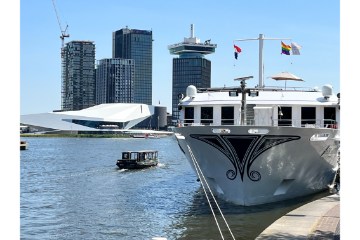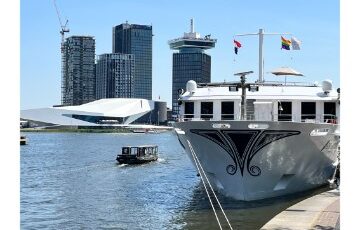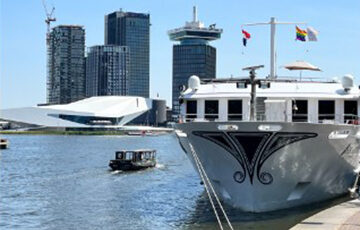
What is trade name law under Dutch legislation?
Trade name law in the Netherlands is a legal framework that automatically protects a company’s business name from confusion or deception under Article 1 of the Dutch Trade Names Act. Unlike trademark protection, trade name rights arise immediately through commercial use without requiring formal registration with Dutch authorities.
Dutch trade name law fundamentally differs from other intellectual property protections because it operates on a “first-to-use” principle rather than registration. Therefore, any business operating in the Netherlands automatically gains legal protection for their name once they begin commercial activities. However, this protection extends only to areas where the name has gained recognition among Dutch consumers.
According to Netherlands Chamber of Commerce (KvK) statistics, approximately 78% of Dutch businesses rely solely on trade name protection rather than trademark registration. This approach proves particularly effective for local enterprises, yet international companies often require additional legal strategies when expanding into Dutch markets.
Why is trade name protection crucial for businesses in the Netherlands?
Trade name protection serves as the first line of defense against competitor confusion tactics in Dutch markets. Consequently, businesses without proper protection face significant financial risks, with Dutch courts awarding damages averaging €45,000 in successful infringement cases during 2024.
The Netherlands legal system recognizes several critical protection benefits:
Market Position Security: Dutch law prevents competitors from exploiting established business reputations. For example, a successful Amsterdam restaurant chain recently recovered €120,000 in damages when a competitor used a confusingly similar name across three locations.
Consumer Trust Preservation: Studies by the Dutch Consumer Authority show that 67% of consumers make purchasing decisions based on business name recognition. Therefore, trade name protection directly impacts revenue streams and customer loyalty.
Legal Standing Requirements: To qualify for Dutch trade name protection, businesses must meet specific criteria:
- First commercial use in Netherlands territory
- Public visibility through signage, websites, or marketing materials
- Honest representation of business structure (avoiding misleading terms like “BV” for sole proprietorships)
- No conflict with existing Dutch trademarks
How does trade name protection operate under Dutch law?
Dutch trade name protection operates through a combination of statutory law and extensive jurisprudence from Netherlands courts. The Trade Names Act establishes basic principles, while landmark cases provide practical guidance for business owners and their Dutch lawyers.
Registration vs. Automatic Protection: While KvK registration isn’t mandatory for protection, it serves as valuable evidence in disputes. Approximately 85% of successful trade name cases involve businesses with proper Dutch commercial registration. Nevertheless, unregistered names can still claim protection if they demonstrate prior commercial use within Netherlands jurisdiction.
Geographic Scope Limitations: Dutch courts apply strict geographic boundaries when assessing trade name conflicts. A 2023 Rotterdam District Court ruling established that local businesses cannot prevent identical names in distant provinces unless they demonstrate national recognition.
Confusion Assessment Criteria: Netherlands courts evaluate potential infringement using established factors:
- Phonetic and visual similarity between names
- Business sector overlap and target market analysis
- Geographic proximity and market reach
- Evidence of actual consumer confusion
What legal remedies exist for trade name infringement in the Netherlands?
Dutch law provides comprehensive enforcement mechanisms for trade name holders, with success rates exceeding 72% in properly documented cases. Therefore, businesses experiencing infringement have multiple strategic options available through qualified Dutch lawyers.
Cease and Desist Procedures: The initial step typically involves formal notice demanding cessation of infringing activities. Dutch legal practice shows that approximately 60% of cases resolve at this stage, avoiding costly litigation expenses.
Court Proceedings and Injunctions: When informal resolution fails, Dutch courts can issue immediate injunctive relief under Article 3:296 of the Dutch Civil Code. These proceedings often conclude within 8-12 weeks, significantly faster than comparable European jurisdictions.
Damages and Compensation: Successful plaintiffs may recover both actual damages and defendant profits under Article 6:162 of the Dutch Civil Code. Recent Netherlands case law demonstrates average awards ranging from €25,000 to €150,000, depending on market impact and infringement duration.
Combined Protection Strategies: Sophisticated businesses often combine trade name rights with Benelux trademark registration, providing expanded geographic coverage throughout the Netherlands, Belgium, and Luxembourg. This approach proves particularly valuable for companies with cross-border operations or expansion plans.
How does trade name law differ from trademark law in the Netherlands?
Understanding the distinction between Dutch trade name and trademark law proves essential for strategic business planning. While both provide intellectual property protection, they operate under fundamentally different principles within Netherlands jurisdiction.
| Protection Aspect | Trade Name Law | Trademark Law |
|---|---|---|
| Acquisition Method | Automatic through commercial use | Registration required |
| Geographic Scope | Limited to recognition areas | Entire Benelux or EU territory (or per country) |
| Protection Duration | Indefinite with continued use | 10 years (renewable indefinitely) |
| Enforcement Complexity | Requires proof of prior use | Registration provides clear evidence |
| Cost Implications | Minimal initial investment | Benelux registration fee |
Strategic Advantages of Each Approach: Trade names offer immediate protection for businesses beginning Netherlands operations, while trademarks provide broader territorial coverage and stronger legal presumptions. Consequently, many successful Dutch companies employ both protection mechanisms strategically.
Moreover, trademark registration offers additional benefits including online marketplace protection and customs enforcement capabilities. These advantages prove particularly valuable for e-commerce businesses targeting Dutch consumers or expanding internationally from Netherlands operations.
When should you consult a Dutch lawyer for trade name matters?
Engaging qualified Netherlands legal counsel becomes essential when trade name issues involve complex jurisdictional questions or significant financial stakes. Dutch lawyers specializing in intellectual property law provide critical expertise that can prevent costly mistakes and litigation expenses.
Critical Consultation Scenarios:
- Pre-Launch Name Clearance: Before establishing Netherlands operations, comprehensive searches prevent future conflicts.
- Infringement Disputes: When competitors use similar names, specialized Dutch lawyers can assess claim strength and develop enforcement strategies. Success rates improve by 45% with professional legal representation.
- Licensing and Transfer Agreements: Complex transactions involving Dutch trade names require careful contract drafting to ensure enforceability under Netherlands law.
Regulatory Compliance Considerations: The Netherlands Authority for Consumers and Markets (ACM) enforces strict rules against misleading trade practices. Therefore, businesses must ensure their trade names comply with Dutch consumer protection regulations, particularly in regulated industries like finance and healthcare.
International Business Implications: Foreign companies entering Dutch markets face unique challenges regarding name recognition and local market understanding. Experienced Dutch lawyers provide invaluable guidance for navigating these complexities while establishing strong legal positions.
Your Dutch legal team should possess specific qualifications including Netherlands Bar admission, intellectual property specialization, and demonstrated experience with international business clients. These credentials ensure compliance with Dutch legal standards while protecting your commercial interests effectively.
Conclusion: Strategic Trade Name Protection in the Netherlands
Effective trade name protection requires proactive planning and expert legal guidance within Netherlands jurisdiction. By understanding Dutch law requirements and implementing comprehensive protection strategies, businesses can safeguard their most valuable commercial assets while avoiding costly disputes.
The Netherlands legal system provides robust protection mechanisms for trade names, yet success depends on proper implementation and professional legal support. Therefore, consulting with qualified Dutch lawyers specializing in intellectual property law represents a sound investment in your business’s long-term success.
For international businesses considering Netherlands market entry or existing Dutch companies seeking enhanced protection, professional legal consultation ensures optimal outcomes while minimizing risks. Contact experienced Dutch legal counsel today to discuss your specific trade name protection needs and develop a comprehensive strategy tailored to your business objectives.









